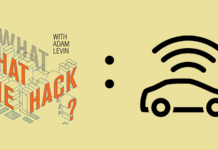Black Friday and Cyber Monday made clear that the online-offline divide in consumers’ minds has almost disappeared. Among the big winners for sales in 2019 will be a device that is perhaps the best physical representation of that diminishing online-offline divide: the digital assistant.
The main contenders for consumer dollars this year come by way of Amazon, Google, and Apple.
Amazon Echo smart home products have been among the company’s most popular items for a while now, but they hit new records in the recent four-day stretch from Black Friday to Cyber Monday. Internet connectivity continues its march to omnipresence in everyday consumer goods.
Televisions feature built-in internet functionality, and the FBI just released a warning about them.
A number of the newer TVs also have built-in cameras. In some cases, the cameras are used for facial recognition so the TV knows who is watching and can suggest programming appropriately. There are also devices coming to market that allow you to video chat with Grandma in 42″ glory.
Beyond the risk that your TV manufacturer and app developers may be listening to and watching you, that television can also be a gateway for hackers to come into your home. A bad cyber actor may not be able to access your locked-down computer directly, but it is possible that your unsecured TV can give him or her an easy way in the backdoor through your router.
Hackers can also take control of your unsecured TV. At the low end of the risk spectrum, they can change channels, play with the volume, and show your kids inappropriate videos. In a worst-case scenario, they can turn on your bedroom TV’s camera and microphone and silently cyberstalk you.
The conveniences afforded by all this new connected technology are great, but it’s important to bear in mind that it also has its downside.
Even basic home goods like doorbells and light bulbs are commonly being sold with Wi-Fi connectivity and the ability to integrate into Google Home-, Siri-, or Alexa-enabled networks. These devices don’t just talk to one another. They’re also providing the companies that manufactured them with a gold mine of data about how they’re being used–and, increasingly, who is using them.
It’s not just IoT gadgets. Tech companies are busy these days trying to weave their way into your wallet, your entertainment, and your health, all the while mining as much data as possible to leverage into other markets and industries.
This has an air of inevitability about it because the right entrepreneur has not yet had the right aha! moment to make it stop being an issue. That said, cracks in the current personal information smash-and-grab approach to consumer data are beginning to appear, and consumers are becoming increasingly wary of how their data is being collected and used as well as who has access to it.
Break Out the Torches and Pitchforks
If a consumer revolt sounds overly optimistic, consider the uproar earlier this year over revelations that smart home speakers were eavesdropping consistently and sometimes indiscriminately on consumers, and the resulting semi-apologies issued by Apple, Amazon, and Google.
Or look at the ongoing civil rights concerns regarding Amazon’s Ring surveillance cameras, or the recent lawsuit against TikTok for allegedly offloading user data to China, or the reports of customers abandoning their Fitbits after the company was acquired by Google.
The message seems clear to me. Consumers may enjoy the convenience and easy access to the internet, but more and more they bristle at the lack of transparency when it comes to the way their data is being handled and used by third parties, and the seeming inevitability that it will wind up on an unsecured database for any and all to see.
While the fantasy of consumers uninstalling and unplugging en masse is common among a small community of sentient eels indigenous to the Malarkey Marshes of Loon Lake, there remains a business opportunity for the larger online community.
Will the Genius of Loon Lake Please Stand Up?
The effort to create a more privacy- and security-centric internet experience for consumers has largely been led by nonprofit organizations. World Wide Web inventor Tim Berners-Lee has been publicly discussing plans to create a follow-up with the aim of reverting to its original ideals of an open and cooperative global network with built-in privacy protections.
Meanwhile, the nonprofit Mozilla organization has revamped its Firefox browser to block several types of ad trackers by default and provide greater security for saved passwords and account information, in addition to publishing an annual guide to score internet-connected devices for their relative privacy friendliness and security. Wikipedia founder Jimmy Wales announced in November a service meant to provide an alternative to Twitter and Facebook reliant on user donations rather than the other social platforms’ often Orwellian ad tracking software.
Without a user base or killer app to drive adoption, Berners-Lee’s new web has been in the works for years, and Wales’s idea is a rehashing of a similar project called WikiTribune that also never managed to find its footing. Firefox is a quality browser, but its market share pales next to Google Chrome’s.
Thus far, nonprofit-driven alternatives have found no lure to drive consumer adoption. The next stage of privacy-centric development may need to have a profit motive to make inroads into the privacy protocols and proxies that dominate apps and devices. It can’t be merely self-sustaining, but rather must be compelling for users, developers, and engineers. One such company, Nullafi, has the right idea: anonymizing and individualizing a user’s most common digital identifier by creating email burners that redirect to the user’s private account. (Full disclosure: I’m an investor.) We need to see more of this kind of development, and we need to see it get adopted.
The current large-scale investment in cybersecurity proves there’s a market in our post-Equifax-breach world where awareness of data vulnerability and the possibility of getting hacked have hit critical mass. The time for the unicorns to arrive is now.










